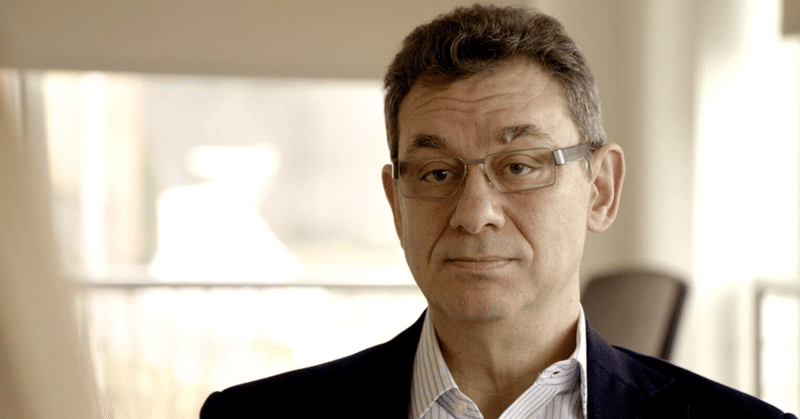
ファイザー、FDA、そしてたくさんの賄賂
ファイザー、FDA、そしてたくさんの賄賂
マイケル・バクスター著 - 2021年8月30日
2019年12月28日、武漢の疫病のニュースがアメリカ社会に浸透した頃、ファイザーのCEOアルバート・ボーラは、当時のFDA長官スティーブン・ハーンに難解なジレンマを突きつけた。ボーラはファイザーの「収入減」を嘆いていたが、これは2019年に167億ドルの利益を上げた製薬メーカーを表現するには奇妙な言葉であり、同社のCEOは2019年に1700万ドル、同社のCovid-19ワクチンが店頭に並んだ後の2020年に2200万ドルの収入を得た。これらの数字には、ボーラが福利厚生、日当、ストックオプションから得ている数千万ドルの資産は含まれていない。これらの資産を年俸に加えれば、ボーラは世界で最も高額なCEOの一人となる。
ハーン氏、ボーラ氏、そしてFDAとPfizerの関係者たちは、Pfizerの自己認識されている財務上の問題について話し合うために個人的な会合を開いた。この会議は、マンハッタンにあるファイザー社の本社で行われたわけではない。また、メリーランド州のシルバー・スプリングスにあるFDAの巨大な施設でもない。FDAと大手製薬会社との公式な話し合いは、通常この2つの場所のいずれかで行われ、ワシントンD.C.のヘイアダムスホテルの役員室のスイートルームでは行われないからである。
ボーラはハーンに、企業秘密が分析されること、ファイザーとFDAとの成文化された契約では、ファイザーには機密情報の公開を防ぐために秘密の話し合いを要求する権限があることを伝えた上で、秘密の集まりを要求したのである。 FDAがこの条件を受け入れたことは、FDAと大手製薬会社が夫婦の寝室を共有していることを示している。
ボーラ氏は、この会議で企業秘密を明かすことはなく、むしろ、過去10年の間に、儲かる薬の多くが特許権を失い、ジェネリック医薬品として販売されるようになったために、ファイザーが「数十億ドルの利益を逃す可能性がある」と愚痴っていた。
参考までに。医薬品の特許は、米国での特許出願日から20年間有効であり、その後は他の製薬会社がその化学成分名を使用して販売することができます。例えば、鎮痛剤Vicodinは、1978年にAbbott Laboratories社が特許を取得しましたが、1999年にFDAはMallinckrodt社とQualitest社に販売許可を与え、利益の一部を元の特許権者であるAbbott Laboratories社に還元しました。リベートにもかかわらず、ほとんどの大手製薬会社は特許の延長を申請し、それが認められることが多い。現在、世界で46社以上の企業が、ヒドロコドン/APAPなどの様々なラベルでバイコディンを製造している。特許保護は予防接種にも適用されるが、国家的危機の際や、2つのワクチンの薬理学的メカニズムが異なっていても同様の免疫学的反応をもたらす場合には、FDAは特許制限を解除する権限を持っている。
ボーラ氏は、ハーン氏が「不公平な」特許保護プログラムを修正する力がないことは理解しているが、ファイザー社とFDAの双方に利益をもたらす取引を提案した。
ボーラ氏は、中国の武漢で猛威を振るっており、間違いなくアメリカにも感染するであろう感染性の高い呼吸器感染症のゲノム配列を「手に入れた」と主張した。このウイルスについて、ボーラ氏は次のように述べている。「季節性インフルエンザよりも致死率が低いようです。空気感染するようで、感染者の間で急速に広がっていきます。症状は危険なものに見えるかもしれないが、我々の分析によれば、平均的な人は99.6%の確率で完全に回復する」と述べた。
ボーラは、ある議題を提示した。すでに開発が進んでいたファイザー社のワクチンをFDAが承認した場合、ファイザー社は今後36カ月間の利益の15%をキックバックするというものだ。「そのお金は、研究費の分配とか、好きなことに使っていいよ」とボーラはハーンに言った。「しかし、あなたの仲間であるCDCやアンソニー・ファウチのような人々に、アメリカ国民の生存を確実にするためにはワクチンが必要であることを印象づけることが重要です。トランプ政権にもこのことを信じさせなければなりません。これが早く軌道に乗れば、より早くワクチンを配布することができ、人々は安心して暮らせるようになります。」
ボーラ氏は、利益を最大化するために、ブースターショットを含む5年間のワクチン接種計画を提案しました。もし、社会が安全だと感じ始めたら、ウイルスのバリエーションを作って、世間知らずの人々を脅して、ワクチンの改良を要求させることができるだろう、とボーラは言った。
これに対し、ハーンは驚くべき告白をした。ファイザー社の競合他社の1社が、すでに同様の計画をFDAに提案していたのだ。ハーン氏は、競合他社の名前を出さずに、緊急使用許可を「評判の良い」ワクチンメーカー間で共有しなければならないとし、「誰もが楽しめるような大きなパイを用意する必要がある」と述べた。
ハーン氏の告白は、大手製薬会社が人々よりも先に、集団的なメンタリティの追求を共有していることを証明している。
「グローバルな販売収益を考慮すると、私たち全員が利益を得ることになるでしょう。ボーラは、「緊急使用許可を少しずつ出すことはできますが、私たちにとって重要なのは、まず完全な承認を得ることであり、それがいつ実現するかは皆さんと皆さんの部下に任せることです。そして、競合他社よりも大きなインセンティブを提供することをお約束します」。
ハーン氏は、「この件は検討する」と言った。
そして、その後は歴史の流れとなった。
この記事の情報は、ファイザーの元幹部から得たものである。
原文:
Pfizer, the FDA, and Bribes Aplenty
By Michael Baxter - August 30, 2021
On December 28, 2019, just as news of the Wuhan plague sank its teeth into American society, Pfizer CEO Albert Bourla confronted then-FDA director Stephen Hahn with what he described as an intractable dilemma: Bourla lamented Pfizer’s “revenue loss,” a curious choice of words to describe a pharmaceutical manufacturer that netted $16.7 billion in 2019, the CEO of which earned $17mn in 2019 and $22mn in 2020–after the company’s Covid-19 vaccine hit the shelves. Those figures exclude the tens of millions of dollars Bourla gets from benefits, per diems and stock options, assets which, if added to his yearly salary, place him among the highest paid CEOs in the world.
Hahn, Bourla, and a gaggle of FDA and Pfizer officials held private talks to discuss Pfizer’s self-perceived financial woes. The meeting did not take place at Pfizer’s corporate headquarters in Manhattan. Nor did the conference happen at the FDA’s mammoth complex in Silver Springs, Maryland. This was unusual because official talks between the FDA and big pharma typically occur at one of those two locations, not a boardroom suite at the Hay-Adams Hotel in Washington, D.C.
Bourla had requested a clandestine gathering, having told Hahn that trade secrets would be analyzed and that Pfizer’s codified agreement with the FDA stipulated that Pfizer had authority to request covert discussions to prevent public dissemination of confidential information. The FDA’s acceptance of those terms shows that it and big pharma share a matrimonial bedchamber.
At the meeting, Bourla divulged no trade secrets; rather, he bitched about how Pfizer had over the last decade missed out on “potentially billions of dollars” as many of its lucrative drugs lost patent protection and became available generically.
For reference: Per FDA statutes, a medication patent lasts 20 years from the date on which the application for the patent was filed in the United States, after which other pharmaceutical manufacturers may market the product using the name of its chemical ingredient. The painkiller Vicodin, for example, was patented by Abbott Laboratories in 1978; in 1999, the FDA granted manufacturers Mallinckrodt and Qualitest licenses to market the product, with a slice of the profits returned to the original patent holder—Abbott Laboratories. Despite the kickbacks, most big pharma file for patent extensions, which are often given. Today, more than 46 companies worldwide manufacture Vicodin under various labels, most notably hydrocodone/APAP. Patent protections apply even to vaccinations, although the FDA has power to lift patent restraints in times of national crisis or if the pharmacological mechanisms between two vaccines differ but produce a similar immunological response.
Bourla said he understood that Hahn was powerless to revise “unfair” patent protection programs, but he proposed a deal that would prove profitable for both Pfizer and the FDA.
He claimed to have “come into possession” of the Genome sequence for a highly transmissible respiratory infection that was ravaging Wuhan China and would undoubtedly infect America. In describing the virus, Bourla said, “It appears to be no more lethal than seasonal influenza. It seems to be airborne and spreads rapidly among infected populations. The symptoms may appear perilous, but based on our analysis, the average person has a 99.6% chance of full recovery.”
Bourla put forward an agenda: If the FDA approved Pfizer’s vaccine, which was already in the works, Pfizer would kick back 15% of profit over the next 36 months. “You can use that money to disperse research grants or for whatever you want,” Bourla told Hahn. “Truth be told, we probably don’t need a vaccine for this, but it’s important that you impress upon your peers, the CDC and people like Anthony Fauci, that a vaccine is necessary to ensure survival of the American people. The Trump administration must be made to believe this. The quicker we get this rolling, the faster we can distribute the vaccine, and people will feel safe.”
Bourla proposed a five-year vaccination plan, to include booster shots, to maximize profit. If society began to feel safe, a variation of the virus could be invented to frighten naïve people into demanding reformulated vaccinations, Bourla said.
In response, Hahn made a startling confession: one of Pfizer’s competitors had already pitched a similar plan to the FDA. Without naming the competitor, Hahn said emergency use authorization would have to be shared among “reputable” vaccine manufacturers, that “there would be a big enough slice of pie for everyone to enjoy.”
Hahn’s admission proves big pharma shares a collective mentality—profit before people.
“Factoring in global distribution earnings, I’d agree we all stand to profit. You can trickle out emergency use authorizations, but it’s important to us that we obtain full approval first, leaving it up to you and your people to determine when that happens,” Bourla said. “And we’ll make sure that we provide greater incentives than any competitors.”
Hahn said he’d take the matter under advisement.
And the rest is history.
The information in this article came from a former Pfizer executive.
この記事が気に入ったらサポートをしてみませんか?
